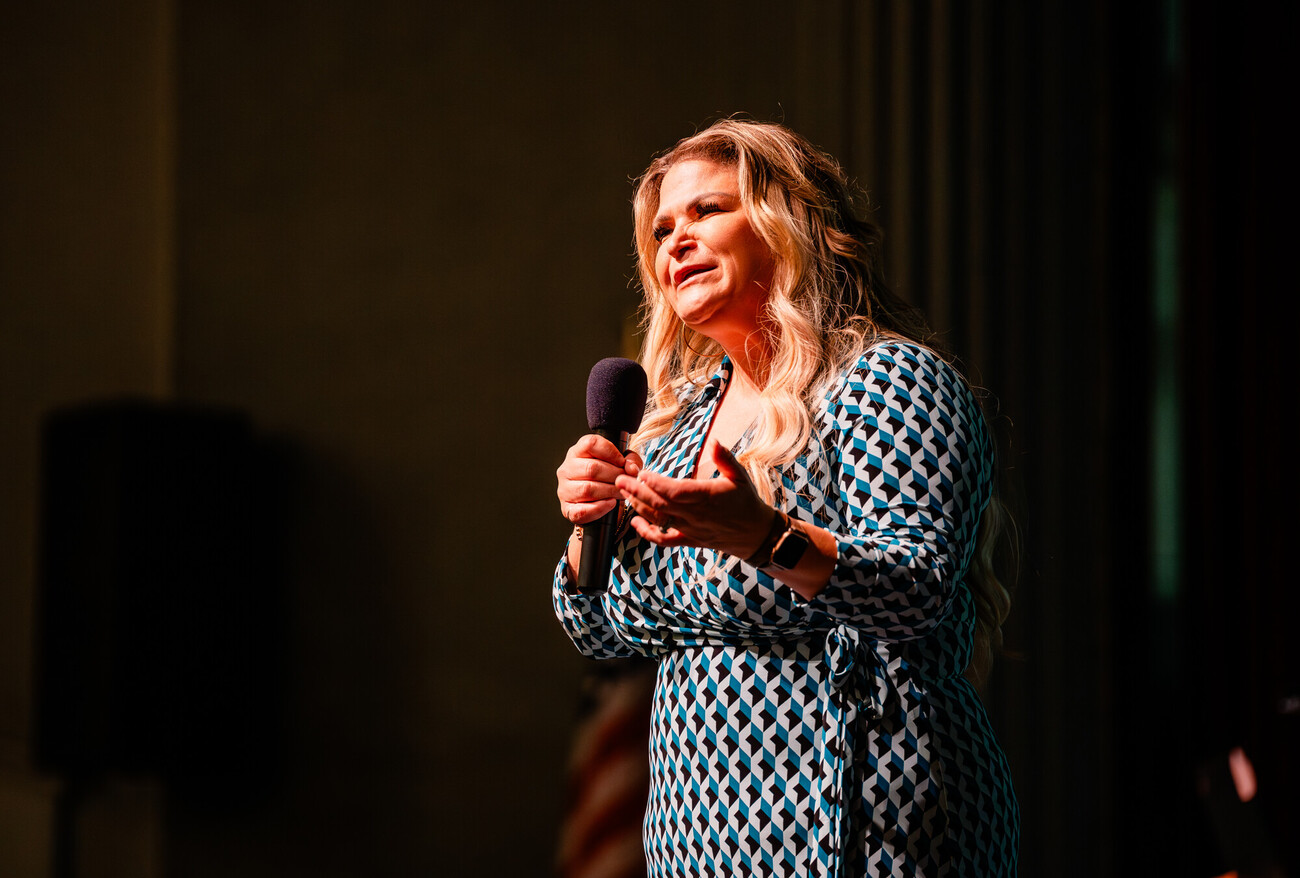Psychologist and best-selling author Dr. Jody Carrington spoke to Marblehead School District teachers on Wednesday during Marblehead Public Schools Welcome Back, held at Veterans Middle School.
Her talk, “Building Resilience in the Age of Burnout,” focused on how educators can reconnect and build authentic relationships, specifically with students.
Carrington defined burnout as “when the resources outside of work intended to fill your soul are not greater than the ones that get sucked from your soul at work.”
She noted that work burnout has accelerated since the beginning of the pandemic and it has brought a social disconnect, the likes of which has never been experienced before.
“In the history of the free world, we’ve never been this disconnected,” Carrington said.
She emphasized that educators have been particularly affected.
Normally, Carrington said, she does not give lectures on burnout this early in the school year, but it has become an increasingly important topic as we continue to move into a post-COVID world. Despite having so many resources, many people, particularly educators, are still feeling disconnected after the pandemic. Though Carrington noted it is important to have a focus on making sure kids are OK during these times, she said we often forget to make sure educators have the same support.
“As we’re heading back into the classroom, what we often forget about is the well-being and the connection to the teachers, to the parents, to the big people walking these kids through hard things,” she said.
Carrington added that it’s hard to make sure children are OK if their educators are not. Teachers spend a great deal of time with other people’s kids. Carrington said that the relationship that develops between teachers and students is extremely important, but can only be maintained if teachers are receiving the same level of support to avoid burnout.
“You can’t burn out from something that you never once loved,” she said, adding that it’s important for parents or guardians to be kind to their kids’ educators and provide them with support so that they can continue to teach and build relationships with their students.
“It’s not that we’ve lost our ability to be great, or kind, or desire to be connected to our fellow students,” Carrington said. “It’s that we’ve lost access to that ability, and so how do we get that back?”

